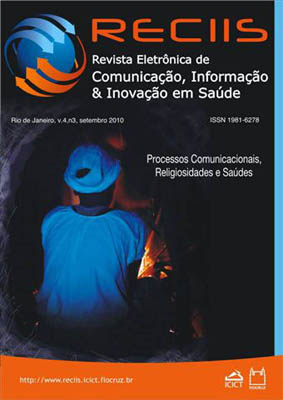Suicide in the grey religious literature: Kardecism as privileged bibliography source
DOI:
https://doi.org/10.3395/reciis.v4i3.662Keywords:
suicide, religion, spiritism, kardecism, grey literatureAbstract
Durkheim was the one who first noticed the impact of religion on suicide rates. Studies have migrated from the social sciences to medicine. This present work investigates the existence of considerable religious grey literature of spiritual orientation on suicide, with particular emphasis on prevention. We have conducted a bibliographic study on the topic of suicide and its relationship with religion, ethnography and netnography. In such study, we have greatly considered grey literature on the written or media cultural production held in Brazil. We have observed that the bibliographic production of spiritual orientation, in areas of grey literature, overcomes that of other religions. Considering religion and faith as protective factors for suicide, this study raises hypotheses for his prevalence: intrinsic aspects of Kardecist cosmology, problems concerning the Catholic theology, the peculiar character of spiritism’s psychography, and the role of grey publications in religiosity. ardecism has the privileged role of reporting on suicide. Health care strategies should take this fact into account, considering the need for creating social network assistance for primary care.Downloads
How to Cite
Issue
Section
License
Author’s rights: The author retains unrestricted rights over his work.
Rights to reuse: Reciis adopts the Creative Commons License, CC BY-NC non-commercial attribution according to the Policy on Open Access to Knowledge by Oswaldo Cruz Foundation. With this license, access, download, copy, print, share, reuse, and distribution of articles is allowed, provided that it is for non-commercial use and with source citation, granting proper authorship credits and reference to Reciis. In such cases, no permission is required from the authors or editors.
Rights of authors’s deposit / self-archiving: The authors are encouraged to deposit the published version, along with the link of their article in Reciis, in institutional repositories.












